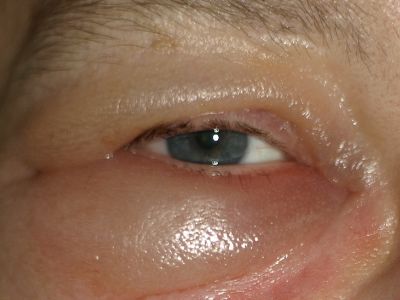Food Allergy

Food Allergy occurs soon after eating a certain food which comes from an immune system reaction. Even a tiny amount of the allergy-causing food may trigger signs and symptoms such as hives, digestive problems, or swollen airways. In several people, a food allergy may cause severe symptoms or even a life-threatening reaction is known as anaphylaxis.
It is easy to confuse a food allergy with a much more common reaction such as food intolerance. Food intolerance is a less serious condition that does not involve the immune system.
Causes of Food Allergy
Having a food allergy means that your immune system mistakenly identifies a certain food or a substance in foods as something harmful. For this reason, the immune system triggers cells to release an antibody called immunoglobulin wherein it neutralizes the allergy-causing food or substance.

The majority of food allergies are triggered by certain proteins in:
- Soy
- Wheat
- Cow’s milk
- Chicken eggs
- Fish
- Walnuts and pecans
- Peanuts
- Shrimp
- Crab
- Lobster
A food allergy can be a source of ongoing concern that affects life at home, work, and school. Daily activities that are easy for most families, such as grocery shopping and meal preparation, can become occasions of stress for families and caregivers living with food allergies.
Risk Factors for Food Allergy
- Asthma: Food allergy and asthma commonly occur together. When they do, both of them have symptoms that are more likely to be severe.
- Age: Food allergies are more common in children. As children grow older, their digestive systems mature and their bodies are less likely to absorb food that triggers allergies.
- Family history: You are at risk of food allergies if hay fever, hives, eczema, or asthma is common in your family.
- Other allergies: If you are already allergic to one food, you may be at increased risk of becoming allergic to another.

Symptoms of Food Allergy
- Feeling sick or vomiting
- Abdominal pain or diarrhea
- Wheezing or shortness of breath
- Feeling dizzy and lightheaded
- Difficulty swallowing
- Tingling or itching in the mouth
- Swelling of the face, mouth, throat, or other areas of the body
- A raised, itchy red rash
- Hay fever-like symptoms such as sneezing or itchy eyes
Diagnosis for Food Allergy
Your doctor will consider several factors before making a diagnosis. These factors include:
- Oral food challenge
- Elimination diet
- A blood test
- A skin test
- A physical examination
- Your family history of allergies
- Your symptoms
Treatment and Medications for Food Allergy
The only way to avoid an allergic reaction is to avoid the foods that cause signs and symptoms. For the minor allergic reaction: Antihistamines are recommended that helps with symptoms. You can also take over the counter products. Doctors may also recommend:
- Citirizine
- Cyproheptadine for relief of allergic reactions such as sneezing, itching, rashes, and hives.
- Desloratadine to alleviate symptoms such as runny nose, itchy and watery eyes or itching of the nose and throat.
- Albuterol to relieve symptoms associated with asthma and chronic pulmonary diseases.
- For the severe allergic reaction, an emergency injection of epinephrine might be needed.



